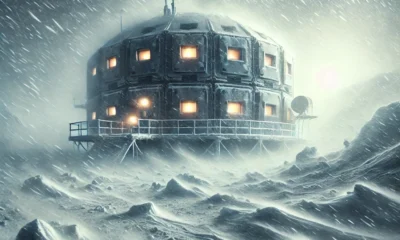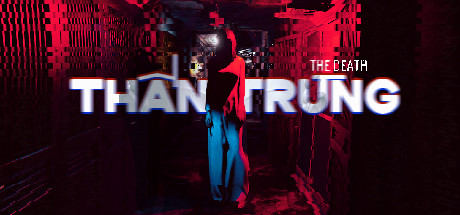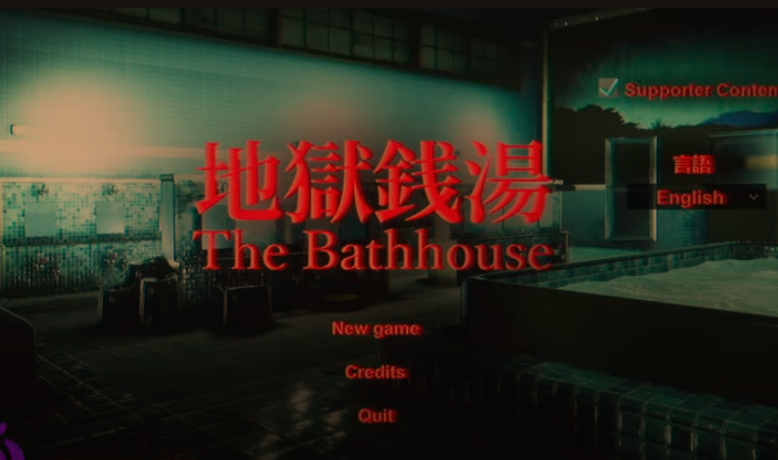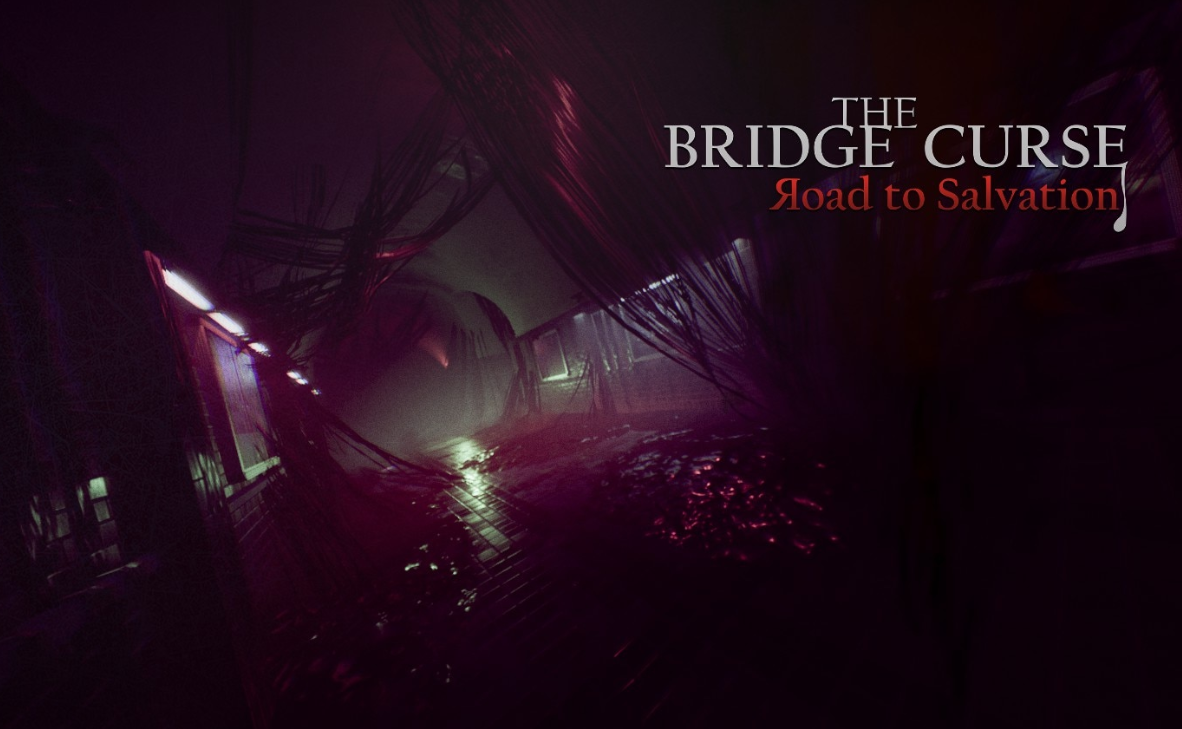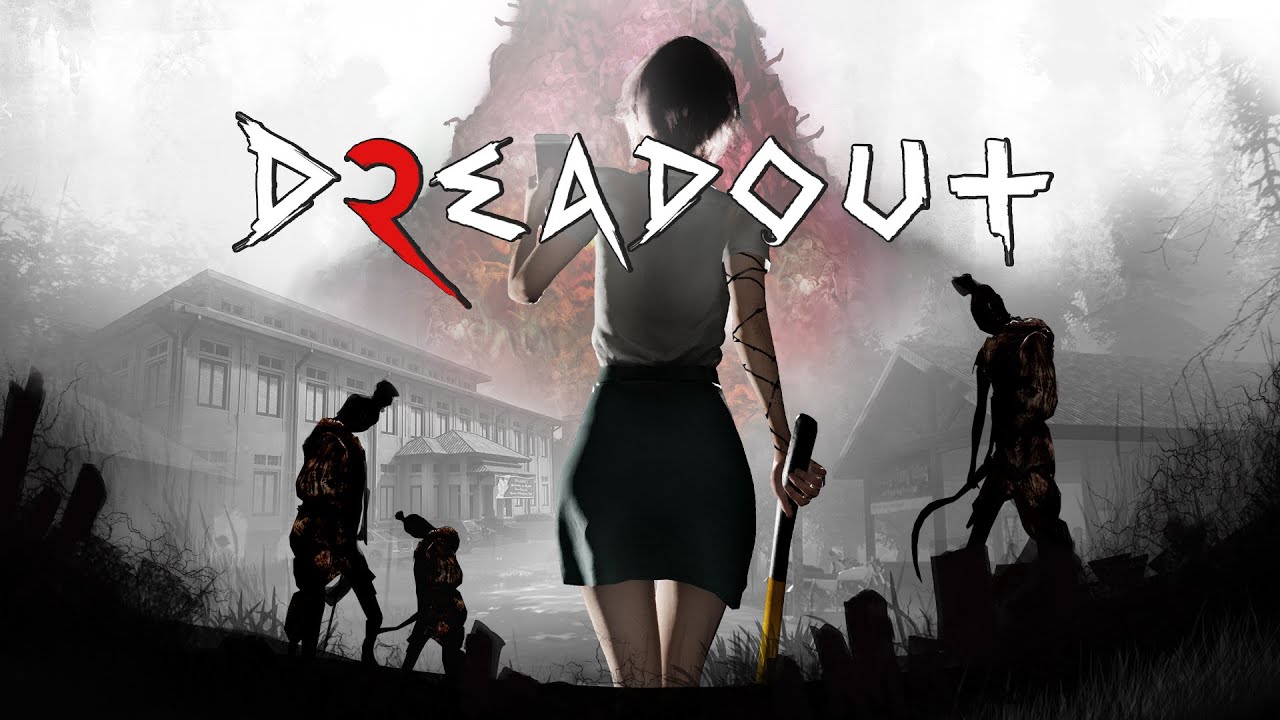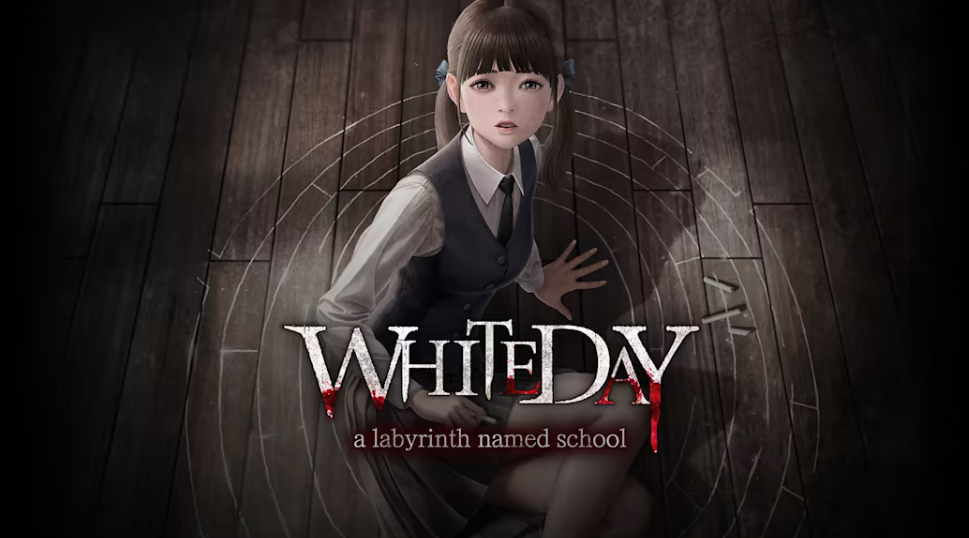
White Day: A Labyrinth Named School Review
If you’re big into Asian horror games or horror survival, you may’ve heard the name White Day: A Labyrinth Named School here and there. It’s a game that’s haunted the gaming landscape in certain niche circles for years. But September 8, 2022 marked the first time that this Korean Horror game has been ported to the X-Box, PlayStation, and Nintendo Switch.
But how well has White Day aged and is it worth the $29 USD price tag?
White Day sees us take the role of your average high school boy in Korea who, very reasonably, decides to infiltrate his school at night so he can leave his crush candy.
But it seems like this high school has other plans because the moment we walk inside the doors lock behind us. Fortunately, there are three eligible bachelorettes also trapped in this nightmare to keep us company.
That’s right. This is a horror survival game with dating sim elements. Love it or hate it, the endings you get is driven by the way you interact with these three characters, and the actions you take that relate to them. Personally, I love that aspect of this game. It’s fantastic to see the choices you make matter.
It’s also our first indicator that this is a game that really, really, really wants you to replay it. There’s even a secret character you can only get by completing the game first. And it helps that this port carries with it all the DLC that was released in its earlier iterations. The DLC, of course, is just 30 different costumes thar range from sexy to ridiculous.
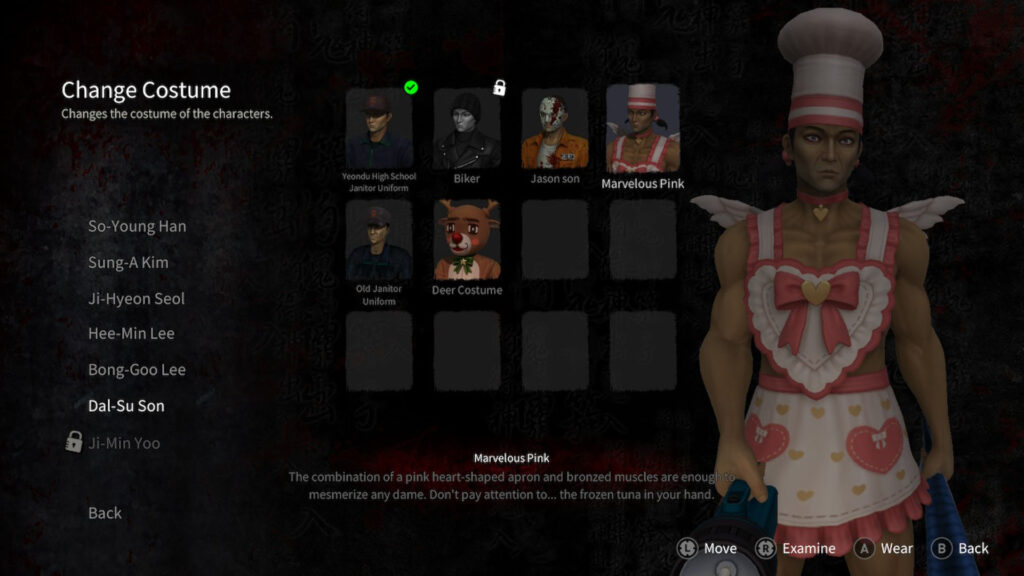
The base game isn’t particularly long, between 7-10 hours, depending on how thorough you are in finding the many ghost stories, collectible items, and solving the myriad of puzzles.
And my god, there are a lot of puzzles. This is a survival horror game in the truest sense. You’re unarmed and your only defense against the forces moving against you is running and solving some convoluted problem using the most random items hinted at by the variety of notes floating around. Sometimes that’s fun. It’s a nice change of pace from beating some misshapen monstrosity to death with a crowbar.
But the primary threat in White Day are the roving janitors. Brutal custodians who will beat you to a bloody pulp if they hear you running or see that a light is on. Their presence contributes wonderfully to the ambiance of the sprawling school, which is filled with discordant music and ambient noise. These feisty grandpas force you to creep through the corridors in the dark, making you the perfect prey for ghosts who only manifest when there’s no light.
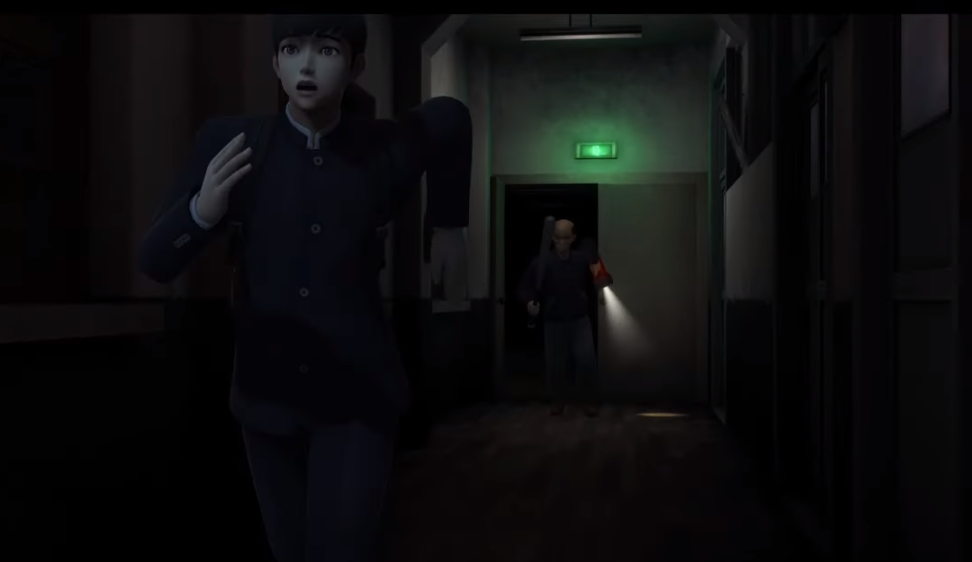
But their AI is pretty keen on normal, and their constant patrol sometimes turns the tension into tedium. Though the stealth system in White Day is significantly better than the jump-in-the-closet mechanic that seems to plague most horror survival games today.
The janitor is also the key source of horror in this game, which is a little disappointing. There are moments of supernatural spooks, but these can be pretty dated and sometimes corny. There are even some old school jump scares that remind me of the early days of the internet. And not in a good way. But there are one or two that are legitimately terrifying and provide good twists to old concepts.
Getting spectral-spooked happens fairly rarely, and sometimes require certain conditions to spawn. It almost feels like a reward when you see one.
Unfortunately, like the ghosts, the characters can also feel a little one dimensional. Our character suffers from the Silent Protagonist syndrome. We don’t hear him speak, though we have dialogue prompts, and he remains painfully stoic and generic the entire game.
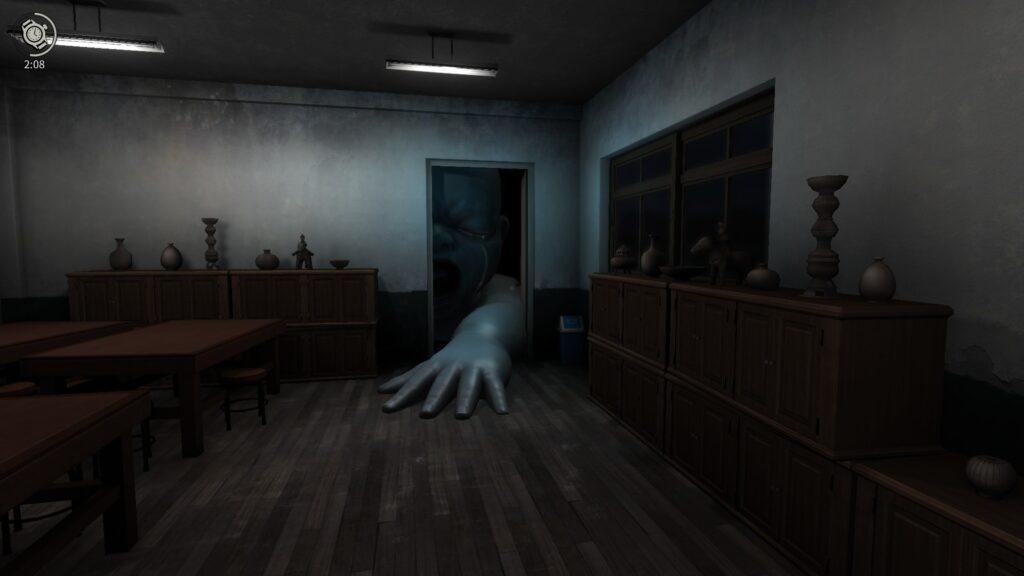
The girls we meet, according to a former game director, are based off the main characters of Neon Genesis Evangelion. And I can see it: you’ve got the spunky antagonistic one, the beautiful ice queen, and the morose and reluctant Mildred. But their personalities don’t seem to extend past those tired tropes. The girls also tend to act over the top, whereas our protagonist will brush off the most bizarre happenings, leading to a strange, almost comical, juxtaposition.
Honestly, you could replace the main character with a dog and I don’t think much would change. Except then you’d be a cute dog, and it’d be a better game.
The saving grace for White Day is its story, which is its driving force. Without giving anything away, I genuinely enjoyed it. The background lore you can find about the school and the ghosts you’ll meet along the way are also excellent contributors to White Day’s world and the reason why I think so many hold this game near and dear.
But if you’ve played this game on the PS4 or on the PC, the price tag isn’t worth it. You’ll only get a few skins (some of the cooler skins have actually been deleted for the PS5 which is absurdly lame) and the graphics look pretty much identical. But if you really, really like Asian survival horror… this game is worth picking up for one reason.
White Day 2: The Flower Never Lies is in the works. And it looks significantly better than White Day 1.
SUPPOSEDLY, it’s coming out in 2022, though I could find nothing concrete. I even scoured Korean sites trying to find a hint of a clue and got nothing. But the new developers, ROOTNSTUDIO, have stated that playing White Day 1 isn’t necessary to enjoy White Day 2, but those who have played it will “enjoy White Day 2 even more”.
If you’re on the fence, maybe wait to see if we ever get that official release day before picking up White Day: A Labyrinth Named School. And maybe pick up The Bridge Curse Road to Salvation to scratch that ghostly, schooly, horrory itch instead.
Gaming
Lovecraft Meets Junji Ito in WORLD OF HORROR
WORLD OF HORROR is a cosmic horror roguelite game developed by Paweł Koźmiński and published by Ysbryd Games.
WORLD OF HORROR is a cosmic horror roguelite game developed by Paweł Koźmiński and published by Ysbryd Games. The game is available on macOS, Windows, Nintendo Switch, PlayStation 4, and PlayStation 5. This review will cover the Steam (Windows) version of the game.
You must explore the strange goings on around Shiokawa, Japan. It appears that eldritch forces have influenced the town in incomprehensible ways. So, attempt to comprehend these forces and maintain your sanity to save the town. Plan your investigations, choose between cases, and fight for your life.
There are a few game modes but three difficulty spikes. The easiest is a specific case with some random events. This mode teaches you the basic mechanics of the game. The harder difficulties give you access to an apartment and choices on which case you investigate. Completing objectives earns you customization options for the customized mode.
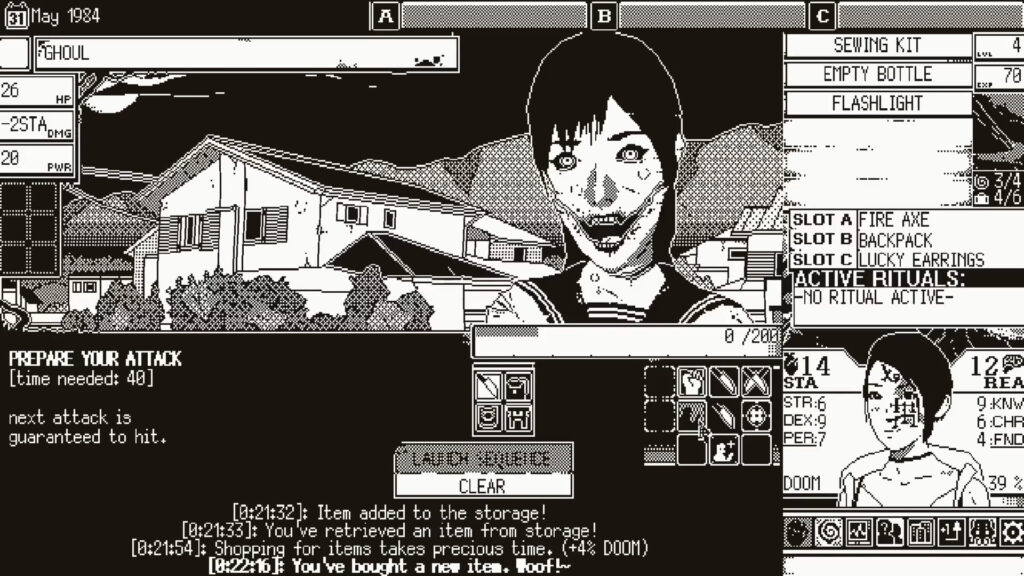
What I Like About WORLD OF HORROR
Running on GameMaker Studios, the pixelated aesthetic shows influences from Lovecraft and Junji Ito, though the latter more so than the former. WORLD OF HORROR haunts its viewers with its aesthetic, allowing the pixels to evoke those horror legends.
Random generation remains a key feature of the game, with various options and choices giving a massive variety. Your character also has some limited customization to access perks and further development. I will bring up some weaknesses later, but it is surprisingly vast. Adding to this variety, WORLD OF HORROR provides mod accessibility.
The combat allows for a great deal of thought and planning. You select your character’s actions within an action bar and perform the tasks (or combos) to beat an opponent. This JRPG style provides variety in action that makes it engaging and unique.
The random generation and variety make each playthrough different. You might acquire a devastating katana in one playthrough only to bleed out unceremoniously in another.
While not a terrifying gaming experience, WORLD OF HORROR strives to provide an eerie and intense experience. At this, the game is a success. The weird and unnerving collide to invest the player in this strange world.

Tired Tropes and Triggers
Body horror deserves a mention, but the aesthetic and pixels doesn’t particularly evoke realism. Regardless, many designs evoke body horror.
Aside from this, here are some points of consideration. First, WORLD OF HORROR uses JRPG turn-based combat, which seems a point of division among some gamers. However, there are enough interesting mechanics and complexities beyond clicking an action and waiting your turn.
Second, WORLD OF HORROR isn’t a cult detective. You’re experiencing events and choosing how your character responds. Some sage wisdom I heard for WORLD OF HORROR is to focus on the whole campaign instead of a single case. Failing a case isn’t a game over, so prioritize your character’s longevity.
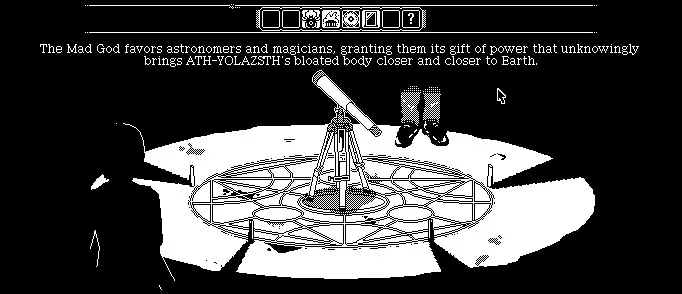
What I Dislike About WORLD OF HORROR
Only a few issues hindered my experience. Some scenarios replay on a single case, let alone a playthrough, which becomes repetitive. Some scenarios have multiple solutions to add variety or require perks to access new options, but that’s not always true. This issue makes the randomization taxing at times.
This next issue is likely a bug or an oversight. After losing my reason (sanity), I found myself still able to investigate despite the game claiming that means death. An unrelated event finished me off, but I can’t help but assume this is a bug.

Final Thoughts
WORLD OF HORROR has its quirks but earns massive replay value and surprising depth. It’s a unique and ambitious indie title worth the price. If Junji Ito’s style or cosmic horror is your particular brand of horror, WORLD OF HORROR delivers an experience you’ll likely enjoy. Though this combination synergizes well, few games combine these elements successfully.
Gaming
🎮 Eldritch Automata: Exclusive GenCon 2024 Reveal with Nick Francia!
Step into the mind-bending world of Eldritch Automata as we sit down with Game Designer Nick Francia at GenCon 2024!
Uncover the secrets behind this Lovecraftian mecha-masterpiece and get a glimpse of what’s to come.
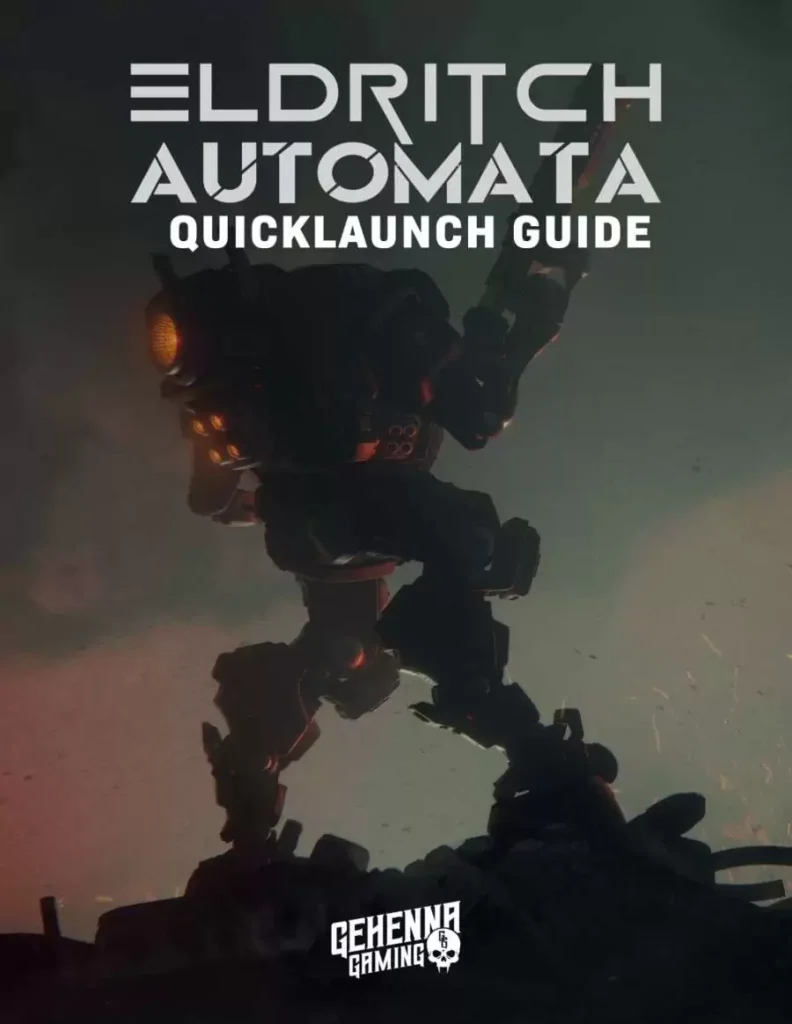
In this exclusive interview, Nick Francia shares:
• The intricate game development process • Inspirations behind the eerie Lovecraftian elements
• Unique mecha-infused gameplay mechanics Calling all Lovecraft fans! Dive into a world where eldritch horrors meet steam-powered marvels.
Eldritch Automata promises an unforgettable gaming experience that will keep you on the edge of your seat.
👉 Ready to embrace the madness? Check out our playable demo at a con near you! #EldritchAutomata #GenCon2024 #LovecraftianGaming #IndieGameDev
Gaming
🎬🎃 House of 1000 Corpses and Halloween II–GAMES!! 🎃🎬 Trick or Treat Studios
Prepare for a spine-chilling experience as Jim Phoenix delves into the shadows with Trick or Treat Studios at GenCon 2024!
In this exclusive interview, we uncover the terrifying secrets behind their latest bone-chilling creations: “House of 1000 Corpses” and “Halloween II” board games.
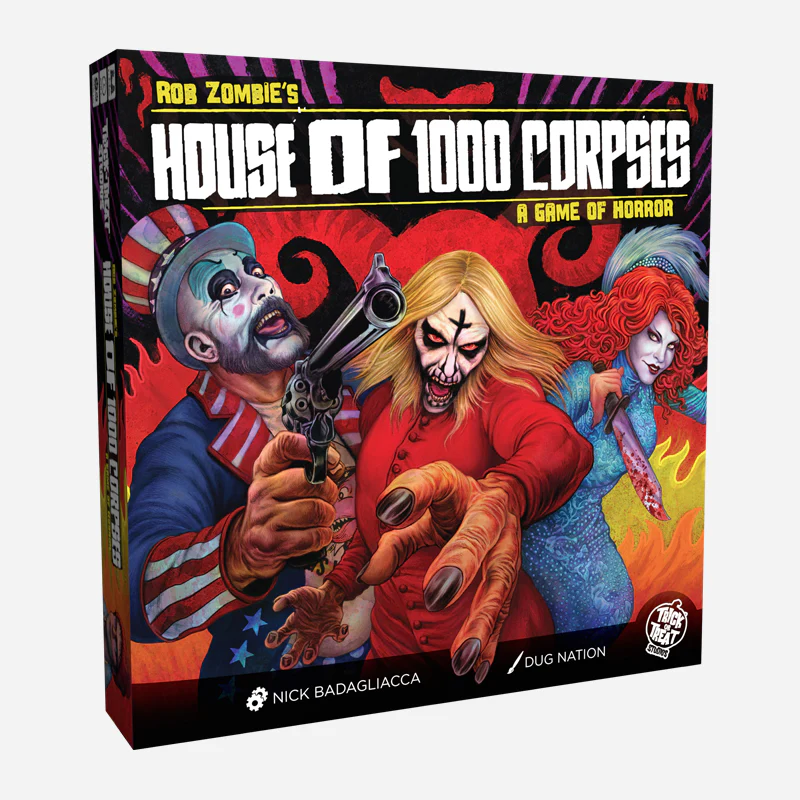
These games aren’t just about rolling dice – they’re about immersing yourself in the blood-curdling atmosphere of beloved horror films. With unique survival (and kill!) horror mechanics and cooperative gameplay, you’ll feel the terror coursing through your veins with every move!
But wait, there’s more! With the Kickstarter to House of 1000 Corpses shipping soon, we have an in-depth review coming up for that game, Halloween II–AND…Chucky. BOOMMM!!!


